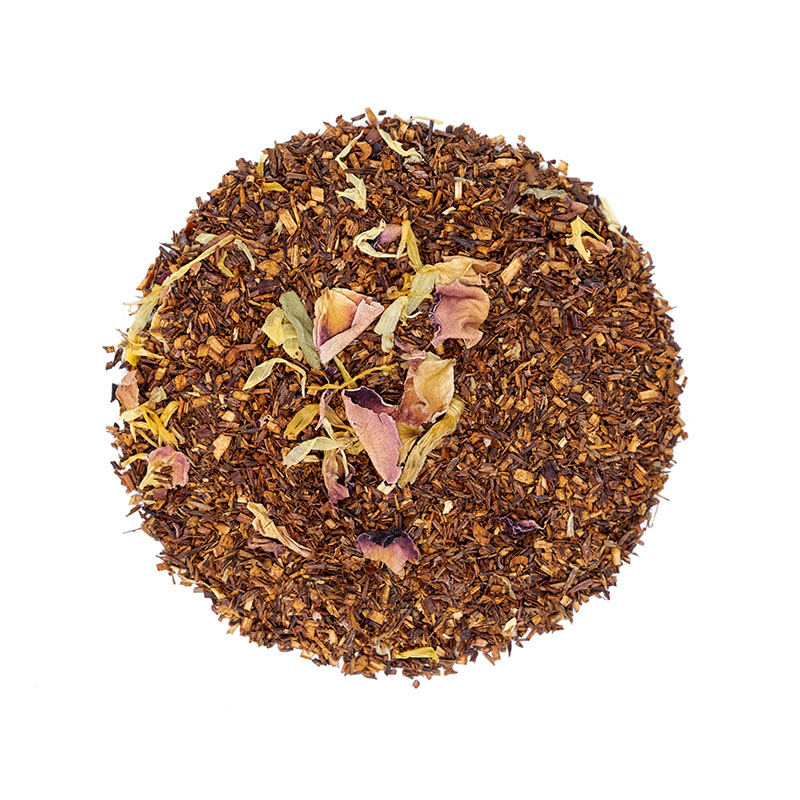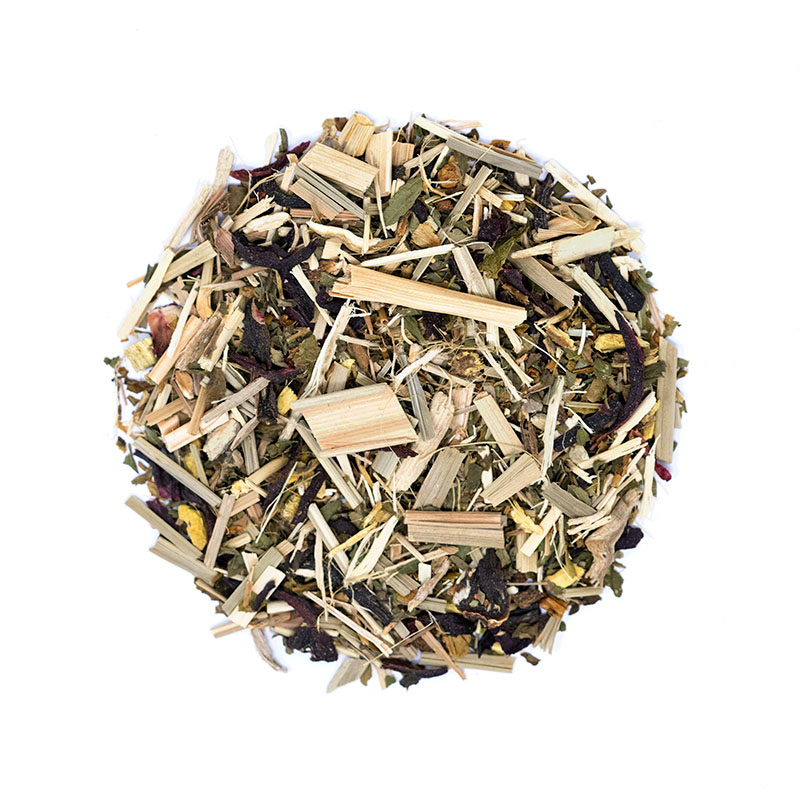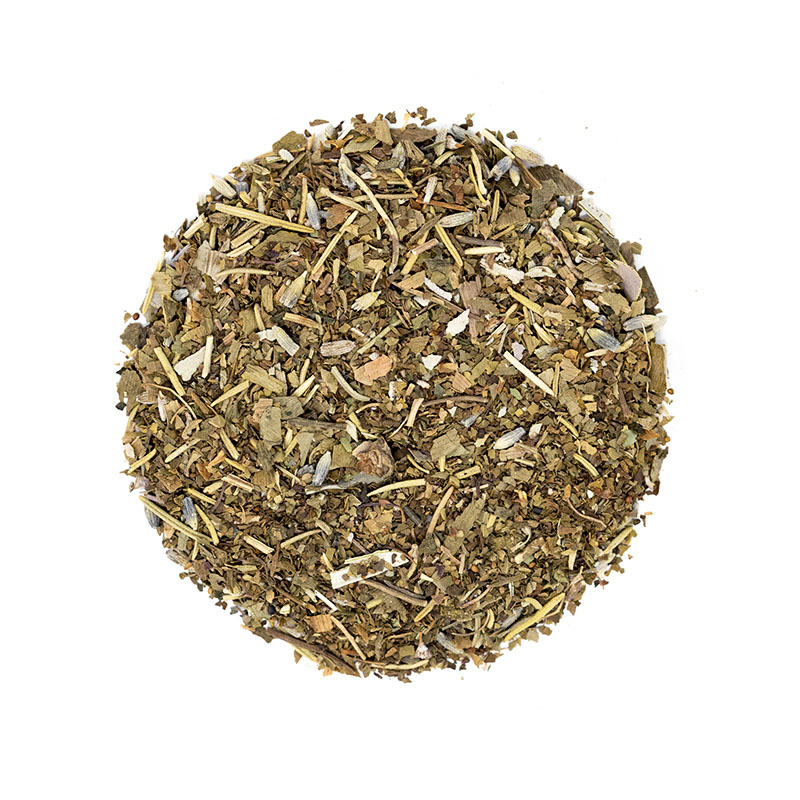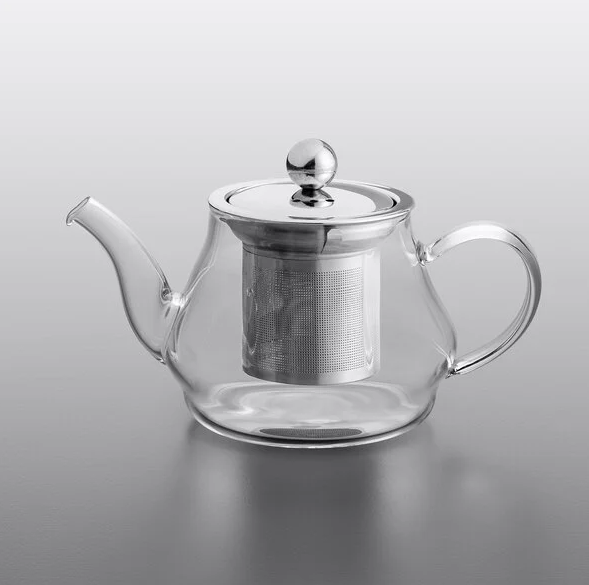Best Calming Teas to Soothe Nerves
Tea drinkers may agree that every cup of tea should be a relaxing one. Drinking tea should be an ideal opportunity to unwind after a stressful day. However, some teas may have better soothing properties than the others. Throughout the history herbs have been used for treating different health conditions–from treating digestive problems to reducing pain and soothing both body and mind. Today, herbal remedies that may help us to slow down, unwind and relax are probably more important than ever. Nature may help with milder anxiety symptoms and depression and help in stressful situations and periods. What are the best types of tea to soothe the nerves?



1. Peppermint
One of the most versatile herbs in the world, peppermint, may help with stress and anxiety. Studies suggest that peppermint may help by increasing the levels of serotonin and dopamine in the brain. Inhaling peppermint essential oils may also be beneficial for reducing anxiety[1].2. Lemon balm
Lemon balm or melissa is a herb from the mint family. Studies suggest it may have an anxiolytic effect and help with boosting mood and reducing anxiety.[2] Lemon balm may significantly increase calmness and alertness[3].3. Rose tea
One of the most beautiful flowers in the world, rose, may help with insomnia[4] and stress. Rose has sedative properties and it may be a good source of antioxidants[5]. Try blending dry rose petals with green tea for a delicious, yet gentle cup of tea.
Evening Jewel, caffeine free rooibos tea with marigols and rose
4. Valerian root
One of the most popular and powerful herbal remedies for sleeping problems - valerian root - may help with both physical and psychological stress[6].5. Lavender
Lavender has anxiolytic, mood stabilizer, sedative, analgesic, anticonvulsive and neuroprotective properties[7]. It’s by far the most used herb for relaxation. Both essential oil and tea are a popular choice for a daily relaxation before sleep.6. Chamomile
It’s far from unknown that chamomile has calming and soothing properties. Chamomile tea is one of the most popular teas in the world. Studies suggest chamomile doesn’t only have calming and soothing properties. It may have anxiolytic and antidepressant properties[8] too.7. Hops tea
Hops may be more popular for beer production than tea, but the powerful benefits may be enough to change the perception on this versatile herb. Studies showed that hops may help with mild depression, anxiety and restleness[9]. It’s often blended with other herb to help with sleeping problems.8. St. John’s wort
One of the most prescribed herbal medicines for treating depression is St. John’s wort. It’s often used for treating mild and even moderate depression[10]. The benefits of St. John’s wort are already well researched and sometimes prescribed instead of real antidepressants. This herb may help with increasing the level of serotonin in the brain[11]. However, be extra cautious if you plan to use this tea for treating depression as it may interact with many drugs and cause side-effects.
After Noon Delight with St. John's wort
9. Passionflower tea
This truly remarkable flower is traditionally used because of its sedative and anxiolytic effect[12]. The main use is for treating anxiety,[13] insomnia and hysteria[14]. Passionflower may help increase the levels of GABA in the brain, an amino acid responsible for helping with mood problems.10. Green tea
Green tea may not be the first choice for calming the mind, but studies suggest it may be very beneficial. It contains an amino acid L-theanine that may provide a calming effect. Studies showed that L-theanine may lead to relaxation and, at the same time, increase focus and allertness[15].What about adaptogens?
Adaptogens are a category of herbs that may help with stress relief. In fact, they may help with all kinds of stress - physical, chemical, mental, emotional, hormonal and biological.[16] They may help boost immune system and benefit the overall health. Some of the most popular adaptogens are Tulsi or the Holy Basil, Ashwagandha and Siberian Ginseng[17]. Adaptogens are caffeine free, and available as herbal teas or extracts. A mild adaptogen, Gotu Kola is often used for skin renewing, but it may have the same benefits on the brain too. Studies suggest that it may help with many brain diseases, memory loss, anxiety, depression and epilepsy.
Clari'tea herbal blend with organic tulsi, gotu kola, lavender, sage, rosemary and ginkgo
How to get the best benefits of drinking tea
To get the best benefits, always use high quality tea or a tea blend. Loose leaf tea is always a better choice than a tea bag. Store all herbs away from sunlight, heat, air and humidity. Learn how to brew tea properly and steep the leaves long enough to release beneficial compounds. Cover the cup with a saucer. Studies suggest that even the type of water will influence how many compounds the leaves will release. Water temperature is important too. Many herbal teas should be made using boiling water. Drink tea while still warm. Some teas may offer a light instant relief, but other will need days, weeks or months to show progress. Make drinking tea a habit and allow yourself to enjoy every step of brewing tea–from smelling the leaves to warming up your teaware and steeping.Should you rely on tea to calm nerves?
Neither tea nor over-the-counter supplements can work as a quick fix to any health problem. Usually, it takes time for any substance to show the best benefits. It’s important to keep in mind that everyone is different, and there may be many causes to any problem. Without knowing the cause, it’s not possible to say what could or couldn’t work. Tea is no different. However, many teas, especially those widely available, are considered safe to use and can offer a light instant relief. Sometimes it’s because you will take time and focus on a more joyful activity, such as brewing and sipping tea. You can enhance the brewing experience by including diffusors with calming essential oils and make a space where you brew tea a truly relaxing environment. Other times, active ingredients in some herbs may offer a relief and act as mild sedatives, increase the levels of dopamine or relax muscles. Every herb is different, and so is every person. Finding the best one is often a process of trial and error. Many are likely to be safe and cause little to no side effects. However, if you are suffering from severe cases of anxiety or depression, or any other health problem, always consult your medical practitioner first. Besides, some herbs may have substances that can interact with other drugs or cause allergic reactions.Disclaimer: This article is for informational purposes only. It’s not intended to replace medical advice, diagnosis or treatment. Every person is different and may react to different herbs and teas differently. Never use teas or herbs to treat serious medical conditions on your own. Always seek professional medical advice before choosing home remedies.
References:
[1] https://www.ncbi.nlm.nih.gov/pmc/articles/PMC6814313/ [2] https://www.ncbi.nlm.nih.gov/pmc/articles/PMC4245564/ [3] http://pennstatehershey.adam.com/content.aspx?productId=107&pid=33&gid=000261 [4] https://www.ncbi.nlm.nih.gov/pmc/articles/PMC3586833/ [5] https://www.researchgate.net/publication/322241352_Determination_of_Antioxidant_Properties_of_Dry_Rose_Tea/fulltext/5a637c954585158bca4e9e4f/Determination-of-Antioxidant-Properties-of-Dry-Rose-Tea.pdf [6] https://www.ncbi.nlm.nih.gov/pubmed/25495725 [7] https://www.ncbi.nlm.nih.gov/pmc/articles/PMC3612440/ [8] http://www.revistafarmacia.ro/201901/2019-01-art-09-Ionita_Cioanca_Hritcu_68-72.pdf [9] https://www.ncbi.nlm.nih.gov/pubmed/28742505 [10] https://www.ncbi.nlm.nih.gov/pmc/articles/PMC4946846/ [11] https://www.nccih.nih.gov/health/st-johns-wort-and-depression-in-depth [12] https://www.ncbi.nlm.nih.gov/pubmed/21294203 [13] https://www.nccih.nih.gov/health/passionflower [14] http://pennstatehershey.adam.com/content.aspx?productid=107&pid=33&gid=000267 [15] https://www.ncbi.nlm.nih.gov/pubmed/28056735 [16] https://www.ncbi.nlm.nih.gov/pmc/articles/PMC6240259/ [17] https://www.ncbi.nlm.nih.gov/pmc/articles/PMC6240259/
More from:
SLL



Leave a comment